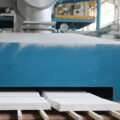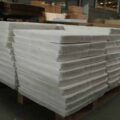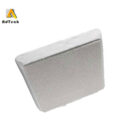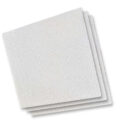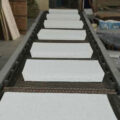Ceramic Foam Filtration offers several key benefits that improve the quality of premium aluminum castings. These include:
- Improved mechanical properties;
- Reduced dye-penetrant indications;
- Reduced x-ray evidence of non metallics;
- Reduced rework/scrap;
- Improved machining properties.
The presence of nonmetallic inclusions is detrimental to the production of premium quality castings. High attainable mechanical properties are a key aspect that is readily lost in the presence of inclusions and oxide skins. The mechanical properties of high-strength aluminum alloys are very sensitive to notches or imperfections in the casting.
Ceramic Foam Filter Filtration effectively reduces inclusion levels and subsequent notch effects caused by inclusions. Conventional techniques for attempting to remove inclusions are ineffective, and the use of metal or fiber screens isn’t sufficient to keep the metal truly free of harmful nonmetallic.
Premium quality castings generally restrict the acceptability of surface defects that are revealed by dye penetrant inspection. Research has shown the level of such defects is reduced when ceramic foam filtration is involved. A marked decrease, or total elimination, of indications has been noted.
Another benefit that is gained from the use of ceramic foam filters is the reduction in the x-ray evidence of non-metallics. The presence of x-ray defects under these circumstances is often the basis for the rejection of expensive castings. The most significant benefit is the reduction of defects visible in those areas that are designated as “structurally critical.”
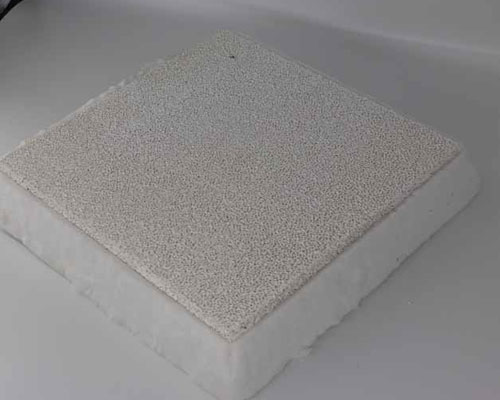
Ceramic Foam Filter Manufacturer
As a professional Ceramic Foam Filter Manufacturer, AdTech offers two models of ceramic foam filters: Ceramic Foam Filter – PAl and Ceramic Foam Filter – PZr. They all have three-dimensional connected mesh structure and the following features.
- High-temperature resistance – the material should not crack or crack during pre-heating or contact with molten metal. The material should have a low thermal expansion to minimize lateral compression stresses while in the filter bowl.
- Corrosion resistance – the filter material should not have significant chemical activity in the intended range of application (time, temperature, alloy content) and should not be wetted by molten aluminum and its conventional alloys.
- Appropriate bending and compressive strength.
- Profitability in manufacturing.
- The filter material after use should be safe for handling and disposal.
- Low density or lightweight, facilitating the work of the pouring span operator.


